Filter by

To know the world :a new vision for environmental learning
"A practical and poetic manifesto promoting new concepts of environmental learning: why environment, inequity, democracy, and diversity are connected challenges, how to navigate the rapid pace of change in the Anthropocene, how to better understand social and ecological networks, how to think about migration both ecologically and culturally, and how to bring a cosmopolitan perspective to place-…
- Edition
- -
- ISBN/ISSN
- 0262361043
- Collation
- 1 online resource.
- Series Title
- -
- Call Number
- -

Animal beauty :on the evolution of biological aesthetics
An illustrated exploration of colors and patterns in the animal kingdom, what they communicate, and how they function in the social life of animals. Are animals able to appreciate what humans refer to as "beauty" The term scarcely ever appears nowadays in a scientific description of living things, but we humans may nonetheless find the colors, patterns, and songs of animals to be beautiful in a…
- Edition
- -
- ISBN/ISSN
- 9780262353359
- Collation
- 1 online resource (128 pages) :illustrations
- Series Title
- -
- Call Number
- -

Seeing the forest and the trees :human-environment interactions in forest eco…
'Seeing the Forest and the Trees' examines changes in land cover & land use in forested regions as major contributors to global environmental change.OCLC-licensed vendor bibliographic record.
- Edition
- -
- ISBN/ISSN
- 9780262280150
- Collation
- 1 online resource (xiii, 442 pages) :illustrations (some color), maps (some color)
- Series Title
- -
- Call Number
- -

Rethinking innateness :a connectionist perspective on development
"A Bradford book."Rethinking Innateness asks the question, "What does it really mean to say that a behavior is innate?" The authors describe a new framework in which interactions, occurring at all levels, give rise to emergent forms and behaviors. These outcomes often may be highly constrained and universal, yet they are not themselves directly contained in the genes in any domain-specific way.…
- Edition
- -
- ISBN/ISSN
- 0585020345
- Collation
- 1 online resource (xviii, 447 pages) :illustrations.
- Series Title
- -
- Call Number
- -
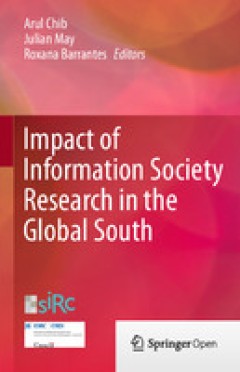
Impact of Information Society Research in the Global South
Communication Studies; Information Systems Applications (incl. Internet); R & D/Technology Policy
- Edition
- -
- ISBN/ISSN
- 9789812873811
- Collation
- -
- Series Title
- -
- Call Number
- -

Human Minds and Animal Stories : How Narratives Make Us Care About Other Species
The power of stories to raise our concern for animals has been postulated throughout history by countless scholars, activists, and writers, including such greats as Thomas Hardy and Leo Tolstoy. This is the first book to investigate that power and explain the psychological and cultural mechanisms behind it. It does so by presenting the results of an experimental project that involved thousands …
- Edition
- -
- ISBN/ISSN
- 9780429590054
- Collation
- 200 halaman
- Series Title
- -
- Call Number
- 800 MAL h
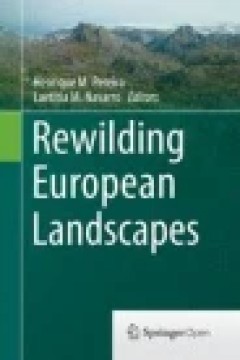
Rewilding European Landscapes
Some European lands have been progressively alleviated of human pressures, particularly traditional agriculture in remote areas. This book proposes that this land abandonment can be seen as an opportunity to restore natural ecosystems via rewilding. We define rewilding as the passive management of ecological successions having in mind the long-term goal of restoring natural ecosystem processes.…
- Edition
- Ed. 1
- ISBN/ISSN
- 978-3-319-12039-3
- Collation
- -
- Series Title
- -
- Call Number
- -
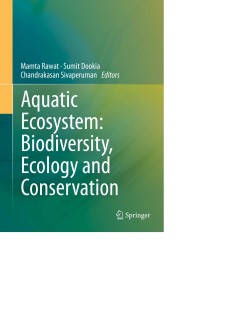
Aquatic Ecosystem: Biodiversity, Ecology and Conservation
This book brings together the latest information on the rapid advances and developments in the field of aquatic ecology. India is very rich in terms of biological diversity due to its wide range of habitats and climatic conditions. It is home to as much as 7 per cent of the world’s animal species, although it only accounts for about 2 per cent of the total landmass. The present work on biodiv…
- Edition
- Ed. 1
- ISBN/ISSN
- 978-81-322-2178-4
- Collation
- XI, 333
- Series Title
- -
- Call Number
- 628.13 AQU a
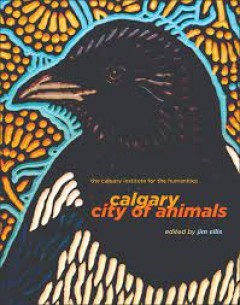
Calgary City of Animals
How have our interactions with animals shaped Calgary? What can we do to ensure that humans and animals in the city continue to co-exist, and even flourish together? This wide-ranging book explores the ways that animals inhabit our city, our lives and our imaginations. Essays from animal historians, wildlife specialists, artists and writers address key issues such as human-wildlife interactions…
- Edition
- -
- ISBN/ISSN
- 9781552389683
- Collation
- -
- Series Title
- -
- Call Number
- -
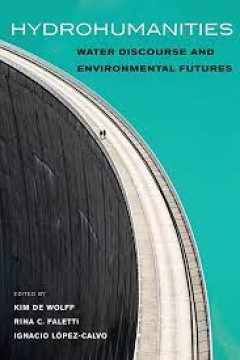
Hydrohumanities Water Discourse and Environmental Futures (Edition 1)
A free open access ebook is available upon publication. Learn more at www.luminosoa.org. Discourse about water and power in the modern era have largely focused on human power over water: who gets to own and control a limited resource that has incredible economic potential. As a result, discussion of water, even in the humanities, has traditionally focused on fresh water for human use. Today, cl…
- Edition
- -
- ISBN/ISSN
- 9780520380462
- Collation
- -
- Series Title
- -
- Call Number
- -
 Computer Science, Information & General Works
Computer Science, Information & General Works  Philosophy & Psychology
Philosophy & Psychology  Religion
Religion  Social Sciences
Social Sciences  Language
Language  Pure Science
Pure Science  Applied Sciences
Applied Sciences  Art & Recreation
Art & Recreation  Literature
Literature  History & Geography
History & Geography